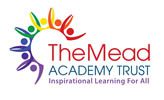The Curriculum: History
History Intent
We intend to develop young historians and ignite children’s curiosity about the past. Children will be taught substantive knowledge in these five areas:
- Chronology and time-line (with associated key knowledge of significant events and people).
- Empire, invasion and war
- Monarchy, Hierarchy, power and democracy
- Resistance and enslavement
- Civilisation (citizen and culture), invention and ingenuity
Through historical enquiry, children develop an understanding of the history of South West England (from Stonehenge to life in contemporary Bristol and Bath), Britain and that of the wider world, including ancient civilisations.
Key to this is the children’s understanding of the chronology of history and the overarching concepts of the subject:
- We teach chronology through the building and revision of a mental time line with historical periods taught in chronological order.
- Through rich stories and meaningful examples, we teach an understanding of how historians use artefacts and evidence to construct, challenge and test claims about the past.
- By studying history in periodic sequence, cause and consequence are understood as drivers of continuity and change over time.
- Reflecting on previously taught historical periods, allows children to develop an understanding of similarity and difference across time.
- Significant people and events are taught and learnt from a global, national and a local context (local being critical for the teaching of meaningful and tangible exemplification). Across all of our teaching of history, issues of diversity and representation are addressed.
In line with the National Curriculum 2014 our teaching aims to:
- equip pupils with the skills, knowledge and understanding to: ask perceptive questions, think critically, weigh evidence, sift arguments and develop perspective and judgement,
- deepen children’s learning and enable them to make connections across historical time periods,
- support children to understand, with empathy, the complexity of people’s lives, the process of change, the diversity of societies and relationships between different groups, as well as their own identity and the challenges of their time.
develop their historical knowledge through a curriculum spiral which provides the building blocks of prior knowledge and ever deepening understanding.
History Implementation
To ensure the highest standards of teaching and learning in history, we implement a sequenced, knowledge rich curriculum that is progressive and builds on prior knowledge and skills over time.
Throughout Key Stage 2, British history is taught chronologically: Stone Age to Bronze Age, Iron Age to Roman Empire, Anglo Saxons and Vikings to 1066, Norman Britain to Medieval times, Tudor Britain, the Victorians and the Industrial Revolution and the twentieth century specifically the two World Wars. At all stages children are provided with the knowledge of periods not covered by a topic eg the Stuarts and the Georgians.
Substantive conceptual knowledge, such as monarchy, threads horizontally across year groups and vertically through the key stages. Children will build up and extend their substantive knowledge of historical events by making connections between historical concepts, other subjects and periods in history. They will retain this knowledge because the focus on recurring concepts and vocabulary enables them to make connections between past and future learning.
Key Stage 1 History Timeline >





